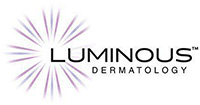Psoriasis
Psoriasis Q & A
What is Psoriasis?
Psoriasis is a skin condition where the regeneration of skin happens at an irregular pace causing a rash characterized by red, raised, dry and cracked scaly skin patches. In some cases, psoriasis affects the fingernails, causing yellowing and small depressions. Psoriasis can be mild, moderate or severe, and, in most cases, an itching or burning sensation accompanies the rash.
The symptoms of psoriasis are the result of an autoimmune disorder, where skin cells are replaced every 3 to 4 days, rather than the usual 30, creating a buildup of cells on the skin’s surface, and causing symptoms to appear on the scalp, elbows, knees, hands, feet, and genitals. There is no known cure for psoriasis however, there are several symptom-relieving treatments available. In the United States, more than seven million men, women, and children have psoriasis.
What are the Symptoms of Psoriasis?
For many psoriasis sufferers, it is merely an unattractive cosmetic issue. However, some people also experience severe pain, which is most common when the condition is associated with arthritis. The symptoms of psoriasis usually come and go throughout the patient’s life. Symptoms of psoriasis vary depending on each patient, but commonly include the following:
- Crusting
- Tenderness
- Thickened nails
- Dry, cracked skin
- Itching or burning
- Red patches of skin covered with silvery scales
How is Psoriasis Treated?
Treatment for psoriasis focuses on clearing the skin of current symptoms. Treatments for the root cause of psoriasis are intended to interrupt the abnormal cell growth cycle responsible increased production of skin cells. This can be achieved through topical treatment, oral medication, light therapies or a combination of the three.
Topical treatment
Corticosteroids, vitamin D or topical retinoids are prescribed for topical use. These medications target inflammation, skin-cell growth, and DNA activity to effectively treat the symptoms of mild-to-moderate psoriasis.
Light therapy
This may be used in combination with topical treatments to slow the production of skin cells and improve the overall appearance of the skin. Light therapy includes exposure to natural sunlight or narrowband ultraviolet-B light.
Systemic medications
Medications are sometimes prescribed for severe cases of psoriasis, or those that are unresponsive to other types of treatment. Prescription oral medications include retinoids, methotrexate, cyclosporine, or Otezla®. Injectable biologic medications include Enbrel®, Humira®, Stelara®, and Cosentyx®.
Patients with psoriasis can help manage and relieve symptoms by keeping the skin clean and moisturized and covering the affected areas while sleeping. Avoiding stress, smoking and alcohol can also help to reduce outbreaks. Following a doctor’s treatment plan and practicing the recommended home remedies can help to provide effective relief from psoriasis symptoms.



